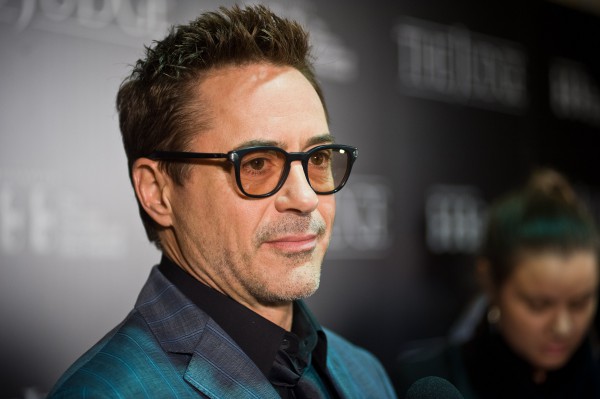
Robert Downey, Jr. is the cornerstone upon which Marvel Studios rests. His role as Tony Stark in 2008’s Iron Man started off the Marvel Cinematic Universe with a bang, and now Downey is getting even deeper into the franchise with big roles in Avengers: Age of Ultron and Captain America 3: Civil War. Downey spoke with Empire Magazine recently to discuss his role in the series, as well as he and Tony Stark’s motivations for the continued effort in the fight against evil.
Despite the focus on his work in the MCU going forward, Downey couldn’t escape the elephant in the room: Iron Man 2. Empire asked, “As someone with a great Iron Man sequel under his belt, but also a not-so-great Iron Man sequel under his belt, what does that teach you when you’re going into a huge follow-up like this?”
You never want to lean on things that you did knowing that it was like a back-up parachute. You don’t want to pretend there’s a back-up to that back-up parachute. And yesterday’s approach doesn’t necessarily work today….You can’t do the same thing, only smaller, not as cool. There’s that other trap – where it’s, “Everything is bigger! Better! Do you know how many gigabytes we used in the opening sequence? How many terabytes?” Ultimately it comes down to that.
Honestly, Iron Man 2 wasn’t altogether terrible, but it did leave room for improvement, and RDJ took the comment in stride because he’s f*cking RDJ, and the man doesn’t do fluster. The interview, which is chock full of info on the upcoming Marvel films, had several highlights:
On Age of Ultron:
Age Of Ultron feels like a beginning and an ending. In the script there’s a lot of references to that – it’s the ending of the beginning, the beginning of the ending – and honestly, what I was marvelling at in being there, back and forth to Shepperton and staying in Richmond up the road from Hemsworth and hanging out with Jimmy and getting to know Aaron Taylor-Johnson and all these new cast members, it’s just wild.
On his old pal James Spader playing Ultron:
He could have done it the easy way and instead he said, ‘No, if I’m gonna do this, I want to have the experience’. He’s got his big hit show (The Blacklist) and I feel that he just wanted a real counterpoint to that, wanted to really dive into doing something that can be extremely tough and thankless. And yet that voice and that personality and what he invested in this iconic villain I thought was kinda great, but it was also kinda silly.
On Joss Whedon leaving the Avengers series:
It’s funny, nobody really ever goes away entirely from the Marvel universe. I’m sure whatever’s going on in ten years, whether I’m receiving a red cent or whether anyone still associates me with the product, there’s still always going to be a level as long as anybody from the original team is there, where you’re connected.
On the reasons he signed on for more Marvel films after Age of Ultron:
I’m crazy about Evans. I really am. I don’t know why or how to explain this particular kinship we have. By the way, he hasn’t called me in six months. Honestly, in order for this whole thing to have worked, I did my part, Hemsworth knocked it out of the stadium and then it fell on Cap. That was the riskiest. It was the one that had the highest degree of difficulty in making it translate to a modern audience. It was the Russos and Chris who, I think, really hit the line drive and won the series. I remember glancing through it going, “Wow, that’s a different way to go”. They said, “If we have you, we can do this or Cap 3 has to be something else”. It’s nice to feel needed.
On the brewing Civil War for Captain America 3:
The main thing to me is, and this is where I think the Russos are quite brilliant and where Kevin backed the play, is what sort of incident could occur and what sort of framework could we find Tony in? The clues are in Ultron about where we might find him next. But what would it take for Tony to completely turn around everything he’s stood for, quote-unquote, because he was the right-wing guy who could still do his own thing. When the first Iron Man came out the liberals and conservatives were both like, ‘You’re our guy’. Yes! Score! But the idea of Tony being able to march into Washington and say, ‘I’ll sign up’, wouldn’t have made sense if the political climate in the real world hadn’t shifted the way it has. It’s a little bit of things following a real world continuum in, ‘What would you do?’
Check out the rest of the interview at Empire Magazine.






